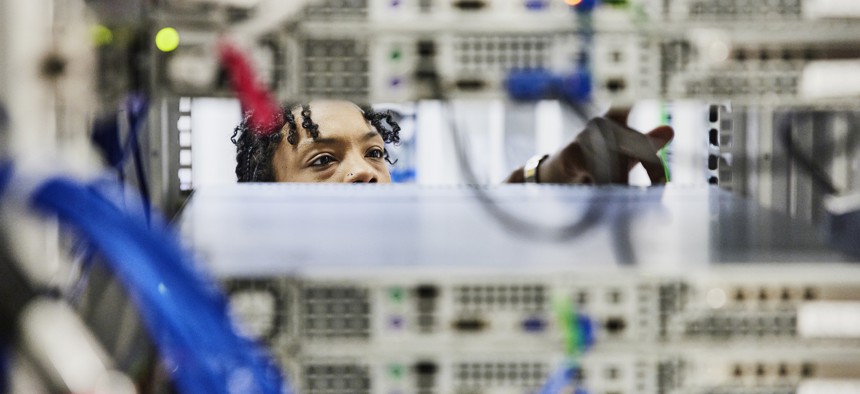Connecting state and local government leaders
Agencies can upcycle existing technology, replacing the components that cause bottlenecks but leaving most of the current structure in place.
The upcycling of plastics has become a vital tool for environmentally conscious companies and consumers to take wasted supplies and transform them into something entirely new. Not only does this process create valuable new goods, but it also reuses plastics and other materials that would otherwise go to waste.
The information technology hardware market finds itself undergoing an upcycling process of its own. Instead of taking raw materials and restructuring them into something new, government agencies and their technology providers can make gradual hardware changes as needed. This concept runs contrary to the rip and replace model that has long dominated data center management and refresh.
The emergence of upcycling
The current growth of technology has outpaced the refreshment cycle in recent years. In many cases, the hardware that agencies use improves faster than those same agencies can realistically use. As a result, the hardware has a longer lifespan as even “older” technologies find themselves still able to meet most current demands.
In the past, data center hardware found itself obsolete within a few years. When agencies wanted to upgrade capacity through a technology refresh, replacing the existing systems and migrating applications and data was a prerequisite.
With current technology, though, the computing and data needs lag behind availability. Replacing entire systems is only required in exceptional cases. Instead, agencies can upcycle existing technology, replacing the components that cause bottlenecks but leaving most of the current structure in place. This is both practical and cost-effective. Agencies can alleviate delays with simple hardware fixes, as opposed to more extensive and more expensive overhauls.
A cost-effective solution
The power of virtual machines and virtualization has created new value in existing technologies. Older hardware can support many virtual instances, creating cloud-like experiences without a large investment.
Leveraging this upcycling process allows government agencies to have the necessary computing power, but without consistently investing in new hardware. As the pandemic has tightened agency budgets, the ability to find savings or delay larger investments has proved invaluable as agencies work within new financial constraints due to shifting spending priorities, according to Deloitte.
While the cloud provides powerful computing, upcycling existing hardware can provide an additional pool of internal computing resources. For example, agencies can take old systems off networks with internet connectivity and use them in a siloed environment that cannot be accessed in the outside world.
Best practices for upcycling technology
Of course, technology vendors want customers to use their services, but that does not have to be left to traditional rip and replace models. Government agencies should look for programs that guarantee hardware upgrades for the life of the system. When a component no longer is viable, vendors should replace it as part of the service contract. That ensures agencies always have a highly operational system until they decide to do a more significant technology refresh.
When looking to upcycle technology, government agencies should consider:
- The technology’s capability as not all products can support upcycling.
- The track record of resiliency and uptime as those with strong service track records make stronger candidates.
- Upcycling typically involves a lower cost and shorter modernization cycle, but may involve longer-term financial commitments.
- Just like with an old car, consider how much time can be gained with upcycling and repairs and conduct a cost-benefit analysis.
- As agencies look at new technologies, they should put more weight on those that can handle upcycling in the future.
For hardware technologies to be upcycled they must have redundant and hot-swappable components, common or at least consistent architecture between generations and internal mitigation technology. These all help avoid downtime and enable a smooth transition.
There are direct financial benefits in upcycling. It offers lower procurement costs for technology refresh, but also for extending the ROI of existing assets while lowering the total-cost-of-ownership for future upgrades. Industry analysis estimates a minimum 30% reduction in TCO of assets capable of being upcycled.
Along with financial rewards, upcycling can help enhance operational efficiency, reduce risk, increase mission focus and reduce procurement complexity. While not all technology can be upcycled, it is imperative that technology leaders look for opportunities whenever possible.
James Langley is a master solutions consultant for Hitachi Vantara Federal.



